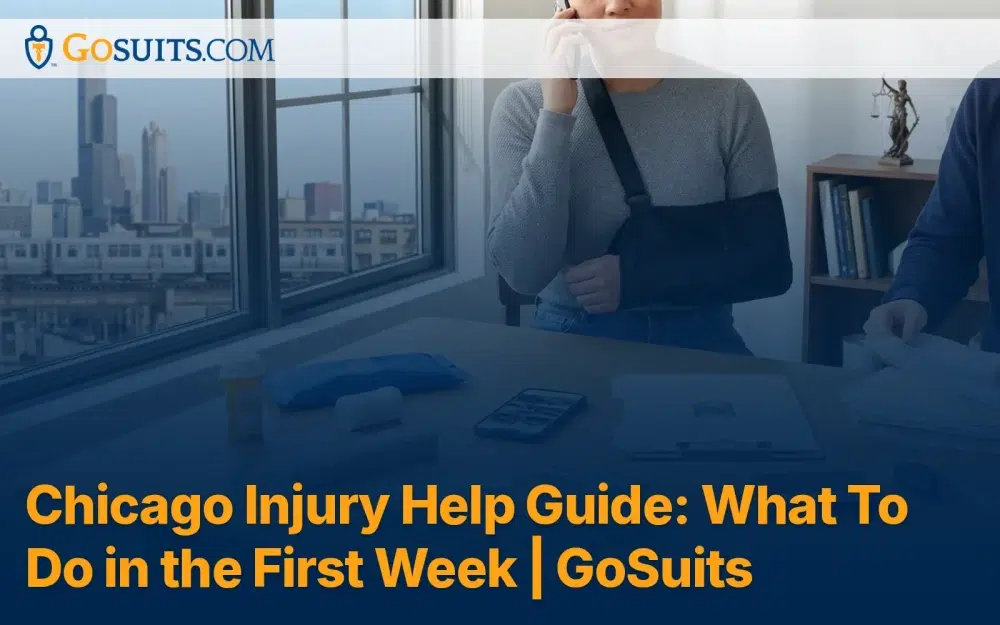A personal injury demand letter holds immense significance in legal disputes. They provide a formal means for individuals and businesses to express their grievances and pursue resolution. Typically, one party, referred to as the sender, drafts these letters to initiate a dialogue with the recipient and seek a satisfactory outcome, aiming to avoid resorting to court proceedings.
A demand letter serves the purpose of presenting the sender’s stance, addressing the prevailing issues, and establishing their expectations for resolving a dispute. By constructing a well-crafted and persuasive argument, it has the potential to compel the recipient into taking the sender’s claims seriously and prompt them to address the matter promptly.
In various legal situations, such as personal injury claims, contract breaches, or property disputes, the use of demand letters marks the initial step toward resolving conflicts without resorting to court proceedings. These letters enable parties involved to communicate their concerns, create room for negotiation, and potentially bypass the expenses and uncertainties associated with formal legal actions.
What is a personal injury demand letter?
A demand letter serves as a formal document utilized by individuals or businesses to assert their legal rights and request specific actions or remedies from another party. In legal disputes, it plays a vital role, acting as the starting point for negotiations or potential legal actions.
A demand letter, also referred to as a letter of demand or notice of demand, serves as a means to express the sender’s grievances, demands, and expectations from the recipient. It essentially outlines the position of the sender while asserting their rights. Additionally, it offers an opportunity for the recipient to address the issue before any legal action is pursued. In most cases, a demand letter acts as an initial step preceding further legal proceedings.
What is its Role in Legal Disputes?
Demand letters serve as a formal communication tool. Their purpose is to enable parties involved in a dispute to resolve their issues without resorting to expensive litigation. By sending a personal injury letter of demand, the sender demonstrates their seriousness in seeking resolution and opens the door for negotiation or settlement talks. Furthermore, these letters often function as evidence, indicating that the sender made attempts to find a solution before pursuing legal action.
Remember that demand letters should embody professionalism by being clear, concise, and substantiated with factual information. They serve as a platform for disputing parties to seek resolution and achieve mutually advantageous outcomes, potentially circumventing the need for court involvement.
How to Write a Demand Letter for Personal Injury Effectively?
When it comes to resolving legal disputes, a well-crafted demand letter for injury claim can be a powerful tool. By clearly laying out your position and outlining your demands, you can effectively communicate your intentions to the other party. Follow these step-by-step guidelines to write an effective demand letter that maximizes your chances of a favorable outcome.
Seek Legal Advice: If you are dealing with a complex legal matter, it may be beneficial to seek advice from a lawyer. They can provide guidance on the appropriate legal terminology and help ensure that your demand letter is accurate and effective.
Remember, the purpose of a demand letter is to open a dialogue and find a resolution. Be prepared for various responses, including negotiation, settlement offers, or the initiation of legal proceedings. By following these guidelines, you can increase the chances of a positive outcome and achieve your desired results.
Recipient’s Information: The demand letter should begin by clearly identifying the recipient. This includes stating their full name, address, and any other contact information that may be relevant.
Details of the Dispute: To effectively outline the dispute, provide a clear and concise record of all relevant facts. This should include specific dates, significant events, and any supporting documentation that strengthens your case.
Clear Demand for Resolution: You should clearly communicate your desired outcome or resolution. Whether you are seeking compensation, requesting specific actions, or demanding a response, make sure to articulate your expectations in a straightforward manner.
Supporting Evidence: Include any supporting evidence that strengthens your position. This can encompass a range of documentation, such as invoices, contracts, photographs, witness statements, or any other relevant records pertaining to the dispute.
Deadline for Response: Specify a reasonable deadline for the recipient to respond. This adds a sense of urgency and demonstrates your commitment to resolving the matter promptly.
The tone of the demand letter should be assertive yet professional, ensuring that no excessively aggressive or confrontational language is used. Such language could impede negotiations progress. By including these essential elements in your demand letter, you can effectively communicate your position and increase the likelihood of achieving a favorable resolution.

Demand Letters for Car Accidents
A personal injury claim letter for car accidents are an important step in the process of seeking compensation for damages and injuries sustained in a car accident. These letters serve as a formal request for payment and outline the specific details of the accident, the injuries and damages suffered, and the amount of compensation being sought. Writing a demand letter for a personal injury requires careful consideration and attention to detail to ensure that all necessary information is included and that the letter is persuasive and compelling.
Personal Injury Demand Letter Policy Limit
When writing a demand letter for compensation after a car accident, it is crucial to include the personal injury demand letter policy limit fully in the letter. The full policy limit refers to the maximum amount of coverage that the at-fault driver’s insurance company is obligated to pay. Including this information in the demand letter is important because it lets the insurance company know the extent of the damages and injuries suffered and the maximum amount of compensation that the injured party is seeking. By stating the full policy limit, it also sets a clear expectation for the insurance company and increases the chances of receiving a fair settlement offer.
Conclusion
Crafting an effective insurance demand letter requires careful attention to detail and a persuasive writing style. By adopting a professional tone, clearly stating your demands, providing supporting evidence, and structuring your letter effectively, you can significantly increase the likelihood of a favorable resolution to your legal dispute. Seek legal advice if needed and be prepared for different outcomes. We usually do not recommend you drafting your own demand letters and suggest you hire an experienced personal injury attorney to represent you. The information provided here is general information and the facts of your case may alter the requirements for a proper demand letter. Therefore, do not rely solely on this information, and this is not legal advice. You should definitely consult with an attorney prior to taking any legal actions.

FAQ
How do I write a letter for injury?
To write a letter for injury, clearly describe the incident, injuries, and any related expenses. Request compensation and specify a deadline for a response.
How do I write a demand letter for emotional distress?
To write a demand letter for emotional distress, detail the circumstances, effects, and any supporting evidence. Request compensation and set a reasonable response deadline.
What is a letter of claim for personal injury claims?
A letter of claim for personal injury claims is a formal document outlining the injury, its consequences, and a request for compensation. It initiates the legal process.
How do I write a personal injury settlement letter?
To write a personal injury settlement letter, outline your terms, specify the amount you’re seeking, and provide supporting documents. Be clear and concise.
To claim an injury, document the incident, seek medical attention, report it to the relevant parties, and consult with an attorney if necessary.
What happens after a demand letter is sent?
After sending a demand letter, the recipient may respond by accepting, denying, or negotiating the claim. Further legal actions may follow.
What happens if there is no response to a demand letter?
If there’s no response to a demand letter, consult with an attorney to explore legal options, such as filing a lawsuit.
Can I Request The Full Policy Limit In The Demand Letter?
Yes, you can request the full policy limit in a demand letter, but it should be reasonable and supported by the injury’s severity and related expenses.
How Long Does It Take For A Case To Settle After A Demand Letter Is Sent?
The time it takes for a case to settle after a demand letter is sent varies but can range from a few weeks to several months, depending on negotiations and other factors.
Can an experienced lawyer send a demand letter?
Yes, an experienced lawyer can send a demand letter on your behalf, increasing the credibility and legal effectiveness of the document. However, most law firm including ours will not do that unless they represent you for your case from the beginning.






